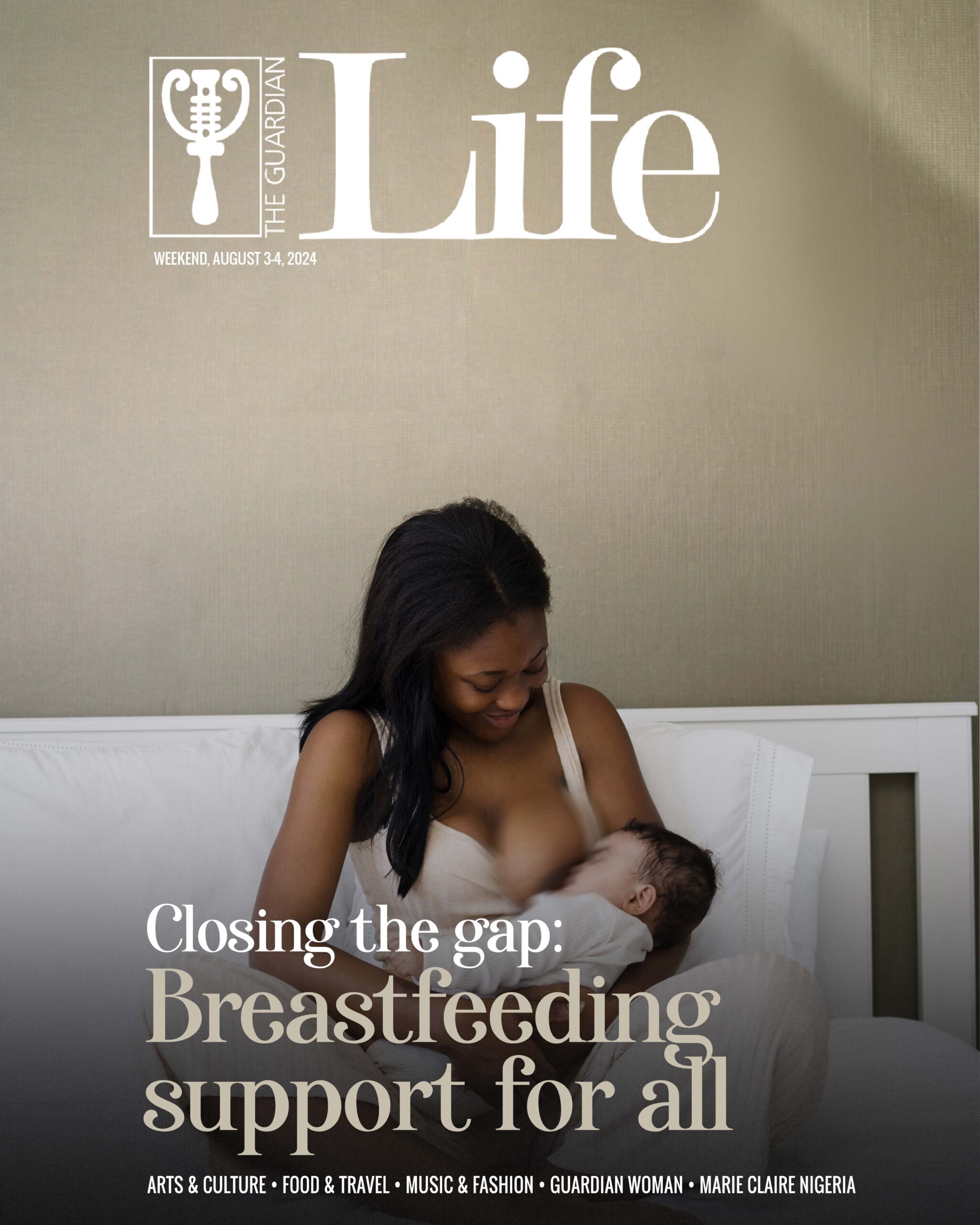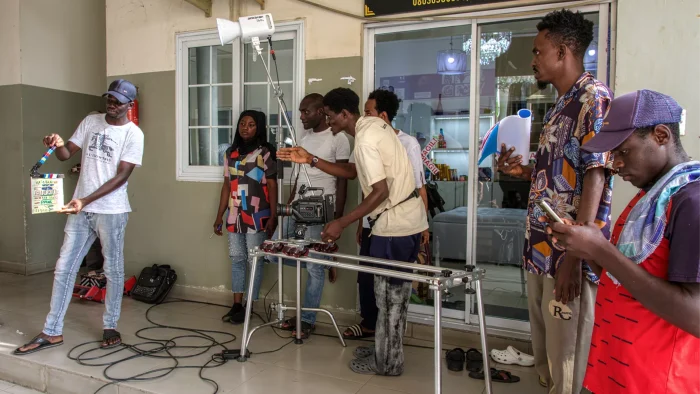By Nkechi Onyedika-Ugoeze
Several studies have established that breast milk is the ideal food for infants, playing a vital role in the holistic development of children, especially during the first 1,000 days. This period is critical for a child’s development and overall well-being.
[ad]
According to the World Health Organisation (WHO), breast milk is safe, clean, and contains antibodies that protect babies against many common childhood illnesses, acting as a baby’s first vaccine. It provides all the energy and nutrients that the infant needs for the first months of life. Inadequate breastfeeding is responsible for an estimated 16% of child deaths each year, WHO said.
WHO and the United Nations Children’s Fund (UNICEF) recommend early initiation of breastfeeding within one hour of birth, exclusive breastfeeding for the first six months of life, and introduction of nutritionally-adequate and safe complementary (solid) foods at six months, together with continued breastfeeding up to two years of age or beyond. However, many infants and children do not receive optimal feeding. In spite of its importance, however, available data from WHO shows that only about 44% of infants aged 0–6 months worldwide were exclusively breastfed between 2015 and 2020.

THE BENEFITS OF OPTIMAL BREASTFEEDING
In low- and middle-income countries, optimal breastfeeding has the potential to prevent more than 800,000 deaths in children under age five and 20,000 deaths in women every year. Moreover, well-breastfed babies have been shown to have higher IQs and develop with healthier weights.
UNICEF Chief of Nutrition, Nemat Hajeebhoy, tells Guardian Nigeria that breast milk provides all the vital ingredients needed for growth and development, particularly that of the brain and gut. Breast milk has antibodies that boost the infants’ immunity, protecting them from illness.
Dr Chikaodili Olumokoro, a consultant paediatrician at the Federal Medical Centre, Jabi, Abuja, emphasises that the initial breast milk, called colostrum, serves as the first immunisation the baby receives as it contains antibodies from the mother that protect the baby from infectious diseases.
“No artificial milk has been able to match breast milk. Breast milk is the best food for the baby, it is a living food, and it changes with the child’s needs,” says Dr Olumokoro. “It is ready on demand, at the right temperature, provides children with the nutrients they need for their age, and helps the child to pass stool very quickly.”
Dr Olumokoro notes that children who are exclusively breastfed have fewer instances of common illnesses such as vomiting, diarrhoea, pneumonia, and other infections, and tend to grow better.
Hajeebhoy explains that besides conferring benefits to the child, breastfeeding protects mothers from certain types of cancers like breast and ovarian cancers, reduces the risk of osteoporosis, promotes postpartum recovery, and strengthens the bond between the mother and child.
Additionally, it helps mothers lose weight, protects against certain illnesses, and reduces the need to spend on foreign imports. Breastfeeding enables the uterus to return to its normal state after delivery, thereby preventing excessive bleeding, helping mothers return to optimal health and wellbeing.
Exclusive breastfeeding has significant financial benefits as it reduces healthcare costs by decreasing the incidence of common childhood illnesses such as diarrhoea and pneumonia, which are costly to treat.
READ MORE: UNICEF advocates exclusive breastfeeding
[ad]
‘NO SUBSTITUTES’
Despite its immense benefits, optimal breastfeeding remains underexploited globally, as the inappropriate marketing of breastmilk substitutes continues to undermine efforts to improve breastfeeding rates and duration worldwide.
In Nigeria, only 34% of infants under age six months are exclusively breastfed, and only 42% were put to the breast within the first hour of birth.
Many women, especially working-class mothers, fail to breastfeed exclusively due to various reasons including a lack of knowledge about its benefits, insufficient support, and the constraints of working in non-baby-friendly environments.
“Some mothers are willing to express milk, but in their place of work, they don’t have a private place where they can stay and express the breast milk and put in the fridge,” Dr Olumokoro explains. This leads them to introduce baby formulas.

“Although the Pediatric Association of Nigeria (PAN) is working hard to curtail the adverts of breastfeeding substitutes and formula feeds, some mothers still mistakenly believe that the milk in formula is as good as breast milk,” she adds. “So, many mothers try exclusive breastfeeding but often switch to formula soon after due to various pressures.”
Emotional distress, physical exhaustion, lack of space and privacy, and poor sanitation experienced by mothers in emergency settings also cause many babies to miss out on the benefits of breastfeeding. In addition, incorrect breastfeeding techniques which can reduce breast milk, societal influences, and a lack of support family members, particularly husbands, can also contribute to the decision to use formula.
Hajeebhoy notes that ongoing nutrition crises in parts of Nigeria underscore the need for continued efforts to protect, promote and support early, exclusive and continued breastfeeding.
Promoting exclusive breastfeeding can save families money spent on formula and medical treatments for preventable diseases. Meanwhile, investing in breastfeeding support can yield high economic returns by enhancing child health, reducing healthcare costs, and increasing productivity.
[ad]
LIMITED SUPPORT
A UNICEF/WHO study estimated that suboptimal breastfeeding practices cost the global economy approximately $341 billion annually due to increased healthcare costs and lost productivity.
“In terms of early initiation of breastfeeding, the trend is showing a decline from 33% in 2017 to 23% in 2021. On the other hand, we see that skilled birth attendance has increased from 43% in 2017 to 51% in 2021,” says Hajeebhoy. “We need to ensure that health works at community and facility levels support mothers to initiate breastfeeding within an hour of birth. We also need family members to be supportive and help the mother put her baby to the breast as early as possible.”
The Multiple Indicator Cluster Survey reports that the exclusive breastfeeding rate increased from 24% in 2017 to 34% in 2021. While Nigeria has shown progress in exclusive breastfeeding up to six months, fewer mothers today are continuing to breastfeed up to two years. Hajeebhoy points out that giving water, especially during the dry season, remains a major barrier.
“Breast milk has all the water that an infant needs and there is no need to give any water (or any other liquid or solid) during these precious six months of life,” Hajeebhoy added.
To reverse this trend, World Breastfeeding Week, supported by WHO, UNICEF, Ministries of Health, and civil society partners to raise awareness about the immense benefits of breastfeeding for both mothers and infants.
This year’s theme, “Closing the gap: Breastfeeding support for all,” underscores the critical need to provide comprehensive support to breastfeeding mothers, ensuring every child has access to this invaluable source of nourishment.
“This year’s theme focuses on survival, health, and wellbeing of women and children,” says Dr Osita Okonkwo, the Country Representative of Nutrition International. “It aims to showcase the need to improve breastfeeding support to reduce inequalities that exist in our society with a special focus on breastfeeding in times of emergencies and crises.”
As Nigeria joins the rest of the world to mark the week, stakeholders in the health sector have urged the Nigerian government to create an enabling environment to promote and support early, exclusive, and continued breastfeeding, and establish robust monitoring systems to track breastfeeding rates and programme effectiveness. They advocate for the extension of paid maternity leave to at least 24 weeks across all states and the enforcement of breastfeeding-friendly workplace policies to support optimal breastfeeding.

[ad]
CLOSING THE GAP
Dr Olumokoro and Hajeebhoy highlight key gaps in breastfeeding, including inadequate maternity leave policies, lack of workplace support, and inadequate access to breastfeeding education and services, particularly in rural areas. Efforts to close these gaps require combined action from the government, partners, community leaders, health workers, and families.
“Paid maternity leave of up to six months is one sure way of encouraging exclusive breastfeeding for working mothers,” explains Dr Okonkwo. “However, legislative action is needed to enforce this, and private establishments must also comply.”
Dr Olumokoro noted that although the government has enforced that maternity leave should be as much as six months, banks are not adhering to it. “Banks give three months leave, if governments can enforce that, but it is also a two-way thing, she says “You may find them not wanting to hire women in the childbearing age or having them sign bonds, which some establishments are already doing to ensure that women won’t have babies in a certain period.”
Hajeebhoy notes that only seven states offer the recommended 24 weeks of paid maternity leave, and many women return to work without the necessary support to continue breastfeeding. To close these gaps, the government, employers, healthcare providers, and communities need to collaborate. Policies should be enacted to extend paid maternity leave, create breastfeeding-friendly workplaces, and provide comprehensive breastfeeding education and support services.
Dr Okonkwo emphasises that, although there are growing efforts by government and key development partners to encourage implementation of workplace breastfeeding policies in the public and private institutions, it is still abysmally low.
[ad]
“People are trying with the antenatal clinics to close the knowledge gap, but it’s becoming a lot more complex,” explains Dr Olumokoro. “The appointment systems in some hospitals, especially private ones, also wouldn’t let that happen. The lack of support in the workplace is a major gap in breastfeeding.”
Hajeebhoy stresses the need for health workers to support mothers at the point of giving birth to initiate breastfeeding early and counsel them on addressing barriers to exclusive breastfeeding. Families and community leaders, including traditional and religious leaders, have a key role in promoting exclusive breastfeeding and closing the gap.
“There is a need to conduct strategic nationwide campaigns to educate mothers and families on the benefits of exclusive breastfeeding and dispel myths, such as the need to give water to infants in the first six months of life,” Hajeebhoy adds.
Healthcare workers should be trained to provide consistent breastfeeding support and counselling from prenatal to postnatal stages. Local structures and community initiatives should be strengthened to support breastfeeding mothers through peer support groups.
By closing these gaps, Nigeria can ensure that more mothers receive the support they need to breastfeed successfully, giving every child the best start in life.
[ad]









